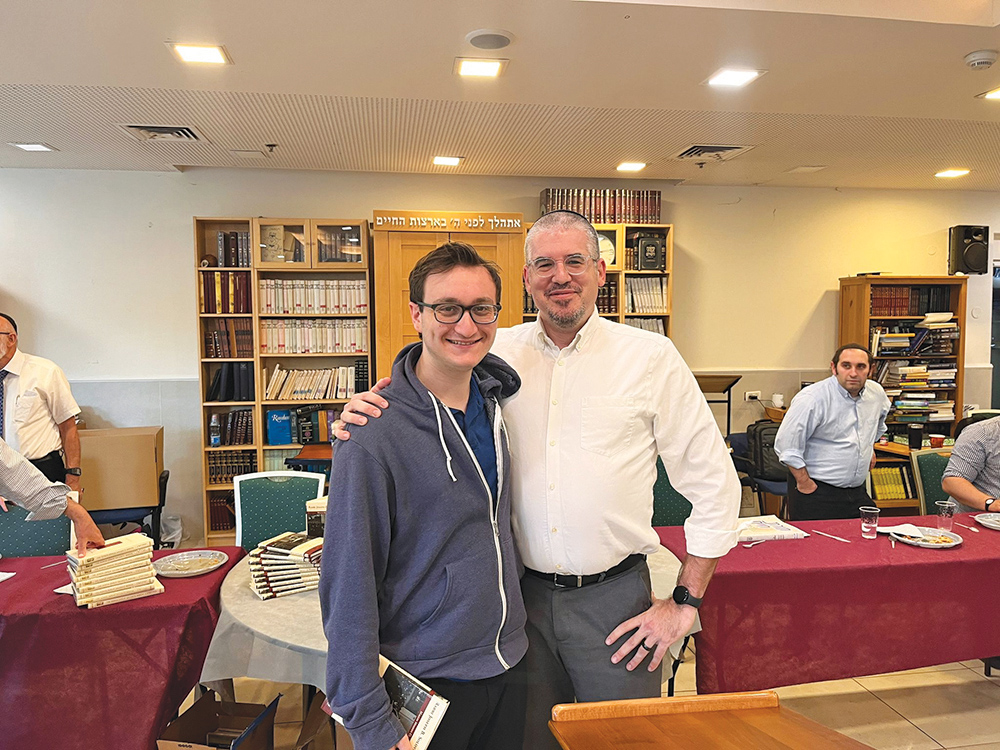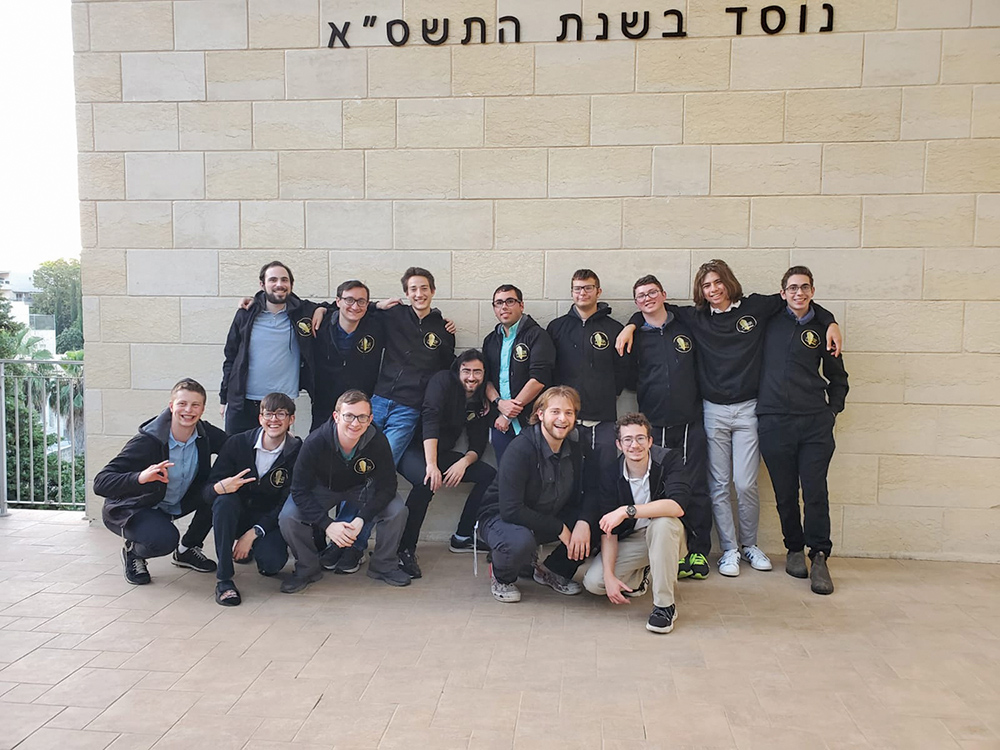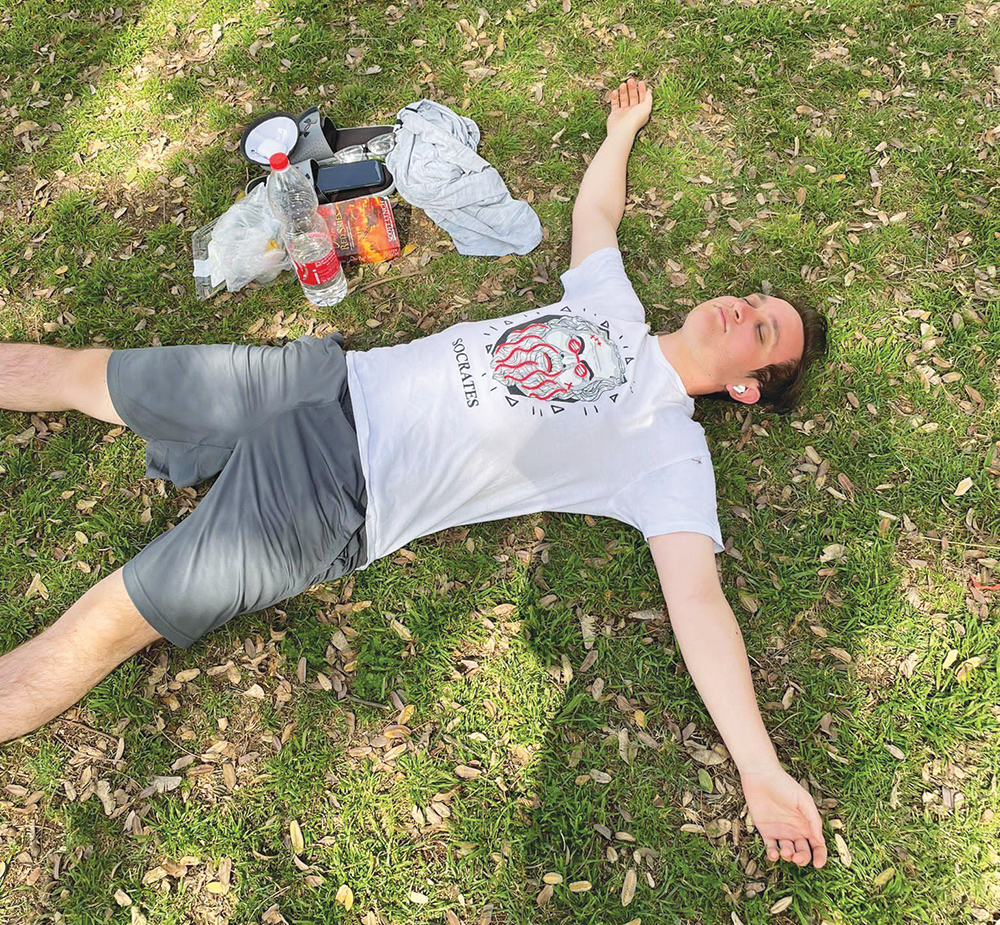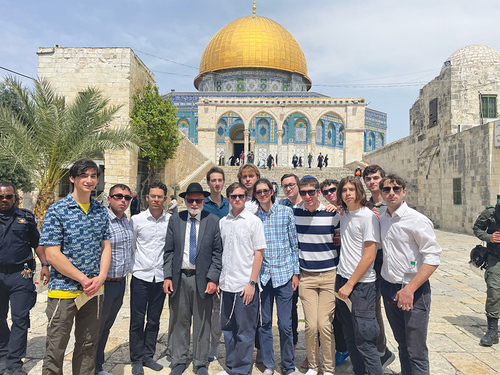By David Deutsch
Reflecting on a transformative year at Migdal HaTorah, Sam Savetsky continues his upward trajectory as he prepares himself for Shana Bet next fall. He attended MTA for high school and lives in Teaneck, where his family attends Congregation Ohr HaTorah.
What drew you to Migdal HaTorah?
I never got to explore a lot of the questions I had about God and religion in high school. I think belief should be grounded in philosophical inquiry. I felt Migdal would allow me to ask these questions and provide real rationale for my beliefs.
How did your year shape you?
I was responsible for myself for the first time in my life, and it was eye-opening to realize just how much my parents had done for me. The additional responsibilities also helped me figure out who I was as a person.

I came to yeshiva hoping to get the big questions answered. I wanted a worldview I could logically and rationally defend against a society increasingly hostile towards religion. I found a place where I could talk things out, formulate my beliefs, and develop in an environment where I wouldn’t be judged for asking questions.
What was learning like at Migdal?
Migdal is very accommodating towards independent learning. I initially dreaded yeshiva because I thought it’d be like high school and I’d be forced to learn Gemara for eight hours a day.
Not being regimented into a rigid learning schedule was empowering. I made chavrutot with rebbeim and students on everything from Tanach to philosophy. Gemara was also wildly different from my expectations and I came to really enjoy it.
Why didn’t you enjoy Gemara before, and what changed?
I didn’t like the “turtles all the way down” approach I’d been taught: You learn a Gemara and then you learn a commentary on the Gemara, and then a commentary on a commentary, and before you know it the year is over and you’ve only learned one line of Gemara. It felt draining.

Migdal favors a more discussion-based style and focuses on understanding the underlying logic of the Gemara. This approach was very appealing to me. We still learn commentaries, but I’m engaging with the Gemara as it was meant to be engaged with—through the back-and-forth the rabbis themselves go through. We’re analyzing the texts together, as opposed to monotonously reading through a bunch of commentaries and calling it a day.
Which rabbi did you really connect with?
Rav Weiscz. He’s very outgoing, warm and nonjudgmental. You can talk to him about anything. He’ll share his perspective, but he’ll also understand things from your point of view and give an answer that works for you—which is helpful when navigating various issues.
What’s your favorite shiur?
Mesorah Shiur is great. We center so much of our life around Torah SheBa’al Peh, but we never ask fundamental questions as to how we got our Mesorah. Step-by-step, Rabbi Herschberg explains what the Mesorah is, how it developed, where it came from, how it was kept, and why it’s still relevant today.
What do you love about living in Israel?
I love living in Modi’in. Everything I need is all within walking distance. I don’t have to schlep and take a bus to get everywhere. I can walk from my apartment and get groceries or go to the mall. I enjoyed fostering that sense of independence.
Our location is fantastic. We’re close enough to Jerusalem that I can go hang out with friends when I want, and we’re close enough to the beach that I can go there on days off.
The city is also beautiful, with parks literally lining the streets.
Where is your go-to place to relax?
If I ever want some “me time,” the parks are amazing. There’s one near my apartment, and I like to walk outside, climb a tree and read a book. It’s fun because I’ll see people I know walking back and forth and they don’t even notice I’m there. It’s my own spot that I have all to myself.
How has learning in Israel impacted you?
Rav Chaim Ozer teaches a shiur called “Modern Mikdash” going over the halachot, history, and debate surrounding Har HaBayit—all culminating in a visit to Har HaBayit itself.
A lot of people talk about how being in the land of Israel is so much different for them, and I never felt that as much. However, after visiting Har HaBayit, I sort of get it. I found it remarkably meaningful to take what I had been learning all year and put it into practice in a place with so much spiritual significance. This is where the Beit HaMikdash once stood 2,000 years ago, and here I am standing where it once did. It really is so much different.

What has been the highlight of your Shana Aleph?
The highlight was walking around the Bahraini Souq wearing my Kippah without fear. Society sort of conditions you to fear the other, but these random Arab dudes were ecstatic and wanted to talk to me. Obviously they wanted to sell me stuff, but still, getting to have a normal everyday interaction with them was a completely earth-shattering experience. I saw firsthand how peace can be had once we realize we’re not so different after all.
Outside of Bahrain, what’s been your favorite tiyul?
When we went to Eilat I went scuba diving for the first time. One of the ways I connect to religion the most is through nature, so swimming underwater was an incredibly spiritual experience for me.
Why did you decide to stay for Shana Bet?
I came into Shana Aleph with all these ideas about God, Judaism and the way the world works in general. Over the course of the year, those views were challenged and I learned there’s more to everything than I initially thought.
After that, Shana Bet became a no-brainer. I had deconstructed my preconceived beliefs but I have yet to build a framework going forward. Once you leave what you thought you knew and have some idea of where you want to go it’s vital to continue fleshing out those ideas to get there.
How has this year prepared you for life?
The approach to learning and freedom provided has given me the skills necessary to navigate college, work, and beyond. I’m way more confident in my religious beliefs. I can go out in the world and actually defend what I believe in and not be pushed around by modern society.
What advice would you give to yourself from a year ago?
Don’t let what you think you know about religion get in the way of what it can be.
What advice would you give to an incoming Shana Aleph student?
This is going to sound cliche, but only because it’s true. Take advantage of the year. If you’re interested in a topic, actively look for someone to discuss it with. You’re surrounded by like-minded people and can explore whatever you want to explore. Take advantage of it.
David Deutsch of Woodmere, New York, is a Shana Bet student currently studying at Migdal HaTorah in Modi’in.








